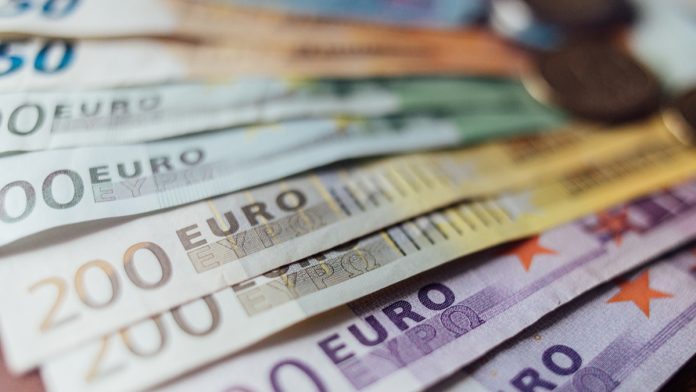A less dovish than expected European Central Bank (ECB) boosted the euro on Thursday. The pound euro exchange rate dropped lower. The pair dipped to a nadir of €1.1248 and is edging higher in early trade on Friday.
| What do these figures mean? |
|---|
| When measuring the value of a pair of currencies, one set equals 1 unit and the other shows the current equivalent. As the market moves, the amount will vary from minute to minute. If the euro amount increases in this pairing, it’s positive for the pound. Or, if you were looking at it the other way around:1 EUR = 0.87271 GBPIn this example, €1 is equivalent to approximately £0.87. This measures the euro’s worth versus the British pound. If the sterling number gets larger, it’s good news for the euro. |
The pound was broadly stronger on Thursday, albeit lower than the euro, following an encouraging message from Bank of England Governor Mark Carney. In a speech in Japan, Mark Carney said that the central bank would need to increase interest rates if the UK economy performed as they expected. He also mentioned that the base case scenario for the BoE is a smooth Brexit, which is by no means guaranteed. Even so, the prospect of tighter monetary policy and higher interest rates offered some support to the pound.
Today is UK Prime Minister Theresa May’s final day in office as Prime Minister. When she leaves the battle for Tory leadership and Prime Minister will heat up. As the candidates put themselves forward they have also laid down their Brexit plan. Signs of the hard-line Brexit candidates performing well will unnerve pound traders.
| Why is a “soft” Brexit better for sterling than a “hard” Brexit? |
|---|
| A soft Brexit implies anything less than UK’s complete withdrawal from the EU. For example, it could mean the UK retains some form of membership to the European Union single market in exchange for some free movement of people, i.e. immigration. This is considered more positive than a “hard” Brexit, which is a full severance from the EU. The reason “soft” is considered more pound-friendly is because the economic impact would be lower. If there is less negative impact on the economy, foreign investors will continue to invest in the UK. As investment requires local currency, this increased demand for the pound then boosts its value. |
Less Dovish ECB Boosts Euro
The euro soared in the previous session following the ECB monetary policy announcement.
As analysts expected, the ECB kept rates unchanged. ECB President Draghi said that interest rates would remain at the current level until the end of the first half of 2020. This was six months longer than in May. However, investors paid more attention to the details of the next round of new cheap loans. The interest rates were higher than what market participants had been expecting. This was interpreted as a less cautious move by the ECB and sent the euro soaring higher.
| Why do raised interest rates boost a currency’s value? |
|---|
| Interest rates are key to understanding exchange rate movements. Those who have large sums of money to invest want the highest return on their investments. Higher interest rate environments tend to offer higher yields. So, if the interest rate or at least the interest rate expectation of a country is relatively higher compared to another, then it attracts more foreign capital investment. Large corporations and investors need local currency to invest. More local currency used then boosts the demand of that currency, pushing the value higher. |
The ECB also lifted its growth projections for the bloc. This was a bold move considering the ongoing trade tensions and fears of a global downturn. The central bank forecast growth of 1.4% in 2020 is higher than previous forecast. The less downbeat outlook also offered support to the common currency.
Today investors will look towards German industrial production figures. Analysts forecast that production declined -0.5% month on month in April. The weak reading could unnerve investors and pull the euro lower.
This publication is provided for general information purposes only and is not intended to cover every aspect of the topics with which it deals. It is not intended to amount to advice on which you should rely. You must obtain professional or specialist advice before taking, or refraining from, any action on the basis of the content in this publication. The information in this publication does not constitute legal, tax or other professional advice from TransferWise Inc., Currency Live or its affiliates. Prior results do not guarantee a similar outcome. We make no representations, warranties or guarantees, whether express or implied, that the content in the publication is accurate, complete or up to date. Consult our risk warning page for more details.
This article was initially published on TransferWise.com from the same author. The content at Currency Live is the sole opinion of the authors and in no way reflects the views of TransferWise Inc.





